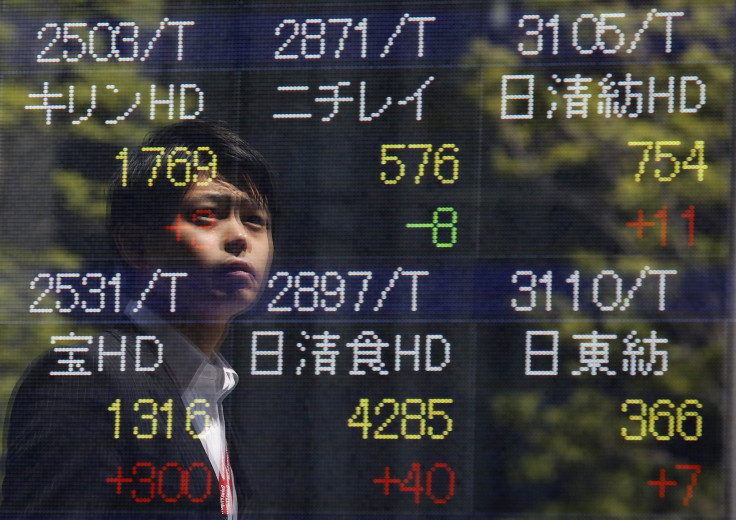Asian Stocks Decline In Volatile Trade Before US Jobs Data On Friday

Asian stocks were buffeted by volatile trading and suffered a decline for a third straight day on Friday to hit new lows for 2013, as markets remained wary following uncertainty about the Federal Reserve's future policy stance, and the latest official U.S. employment data, expected on Friday.
Expectations of a weaker job market in the U.S. weighed on regional currencies while stock indices took significant hits. Japan's Nikkei entered in to bear-market territory on Friday after losing nearly 20 percent in the past two weeks, after touching a five-and-half year high on May 23.
Hong Kong's Hang Seng declined 1.16 percent, or 253.19 points to 21,585.24, while China's Shanghai Composite fell 1.22 percent. South Korea's KOSPI slumped 1.63 percent while Japan's benchmark Nikkei index recovered from early lows to end the day down 0.2 percent. Australia’s S&P/ASX 200 ended down 0.7 percent.
Japanese shares plunged for a third straight session after Prime Minister Shinzo Abe failed to impress investors with his growth strategy while the Japanese yen’s overnight rally against the dollar weighed on exporters' shares.
“Abe’s growth strategy has already been priced in, getting rid of buying opportunities,” Isao Kubo, a Tokyo-based equity strategist at Nissay Asset Management Corp., which oversees about 6 trillion yen ($62 billion), told Bloomberg. “Japanese shares and the yen have corrected a lot to the point where some investors may as well buy the stocks. But we are not seeing buying because the global market is volatile ahead of a U.S. jobs report.”
The U.S. dollar was down against major counterparts overnight on fears about the Fed’s next move and amid expectations of a weak payrolls number. The yen surged the most in three years on Thursday and revisited its high level of 95.93 against the dollar seen on April 16. The euro surged to a three-and-half month high of $1.3306 following a pretty uneventful European Central Bank press conference.
The Korean Won gained 0.7 percent against the dollar in morning trade while the yen’s strength continued into Friday after Japan’s Finance Minister Taro Aso said the government won’t intervene in the currency market at least in the near term.
Employment data from the Institute for Supply Chain Management and private-sector hiring data from ADP were both below expectations, raising concerns that Friday's official employment report for May would also disappoint markets.
“If payrolls surprise to the upside and print at 175,000 or better, all of the liquidation of dollar-long positions that we saw today, particularly in the [dollar-yen] could be reversed quickly and aggressively, with the pair potentially trading back above ¥98 in a blink of an eye,” Kathy Lien, BK Asset Management managing director, told Market Watch.
In the November to May period, the Japanese yen depreciated more than 30 percent against the greenback and sent the Nikkei to multi-year highs as a weaker yen boosted exporter companies’ shares.
© Copyright IBTimes 2024. All rights reserved.




















